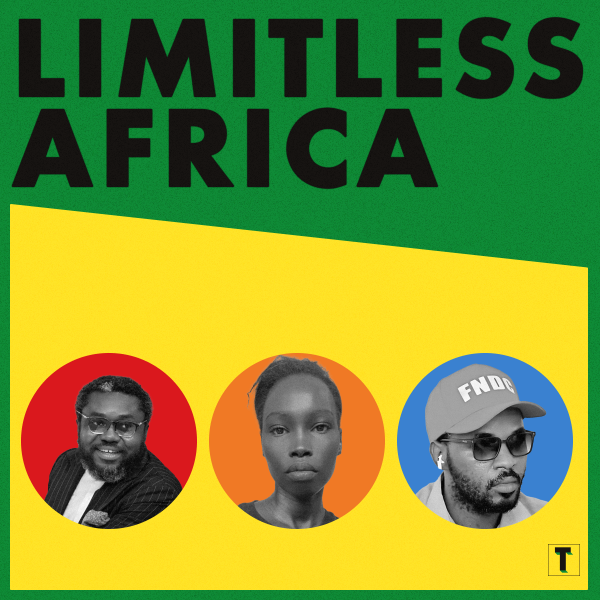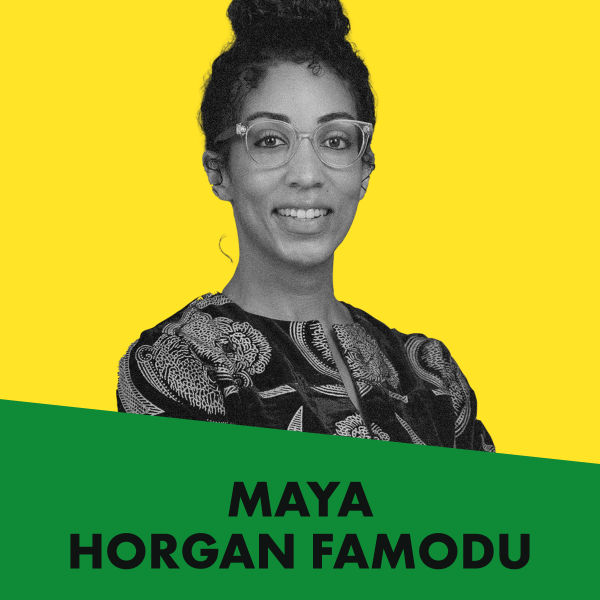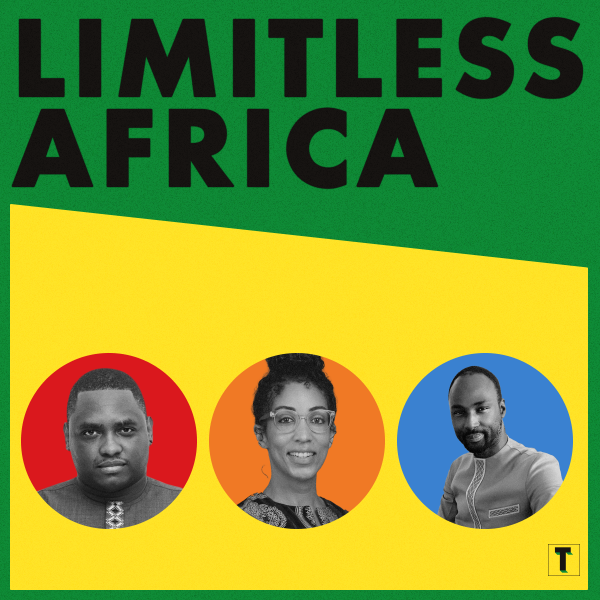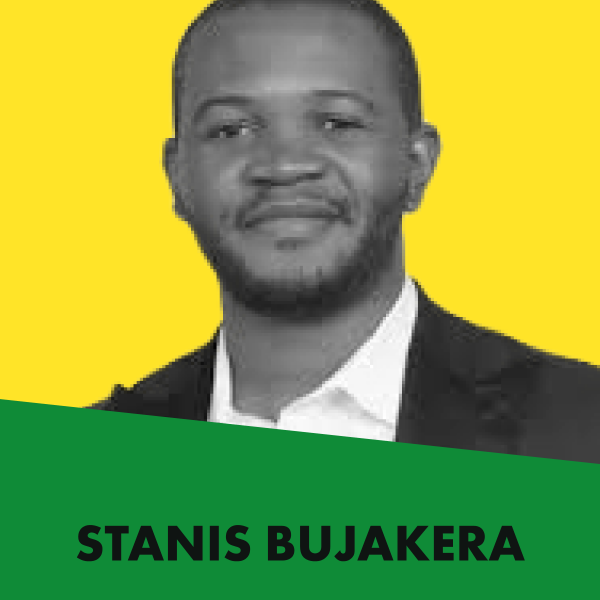Can social media start a movement?
With guests Abdoulaye Oumou Sow, Mari Malek, Oliver Barker-Vormawor

Episode notes
From the #FeesMustFall protests in South Africa to the #EndSARS movement in Nigeria, social media activism has been shown to raise awareness and bring about social change.
Transcript
Claude: In this episode we’re discussing social media activism
“Social media has this ability to transform people into armchair protesters, whereby tweeting something they feel like they have done a lot and that’s enough.”
“We can be the change makers and use the platform versus letting the platform use us.”
“Social media is a human right Claude: In this episode we’re discussing social media activism “Social media has this ability to transform people into armchair protesters, whereby tweeting something they feel like they have done a lot and that’s enough.” “We can be the change makers and use the platform versus letting the platform use us.” “Social media is a human right Claude: From the #FeesMustFall protests in South Africa to the #EndSARS movement in Nigeria, social media activism has been shown to raise awareness and bring about social change. For this episode I spoke to three activists about how social media helps them change minds. Oliver Barker-Vormawor is a governance advisor and one of the founders of the #FixTheCountry movement in Ghana in 2021. The movement is politically neutral and is designed to rally young people around transparency and democracy. I wanted to ask: three years on, does he still think social media can affect change in Ghana? Here’s our conversation. Claude: Do you still have faith in social media and its ability to affect change and bring democracy to countries? Oliver: So you know, one of the things that we are particular about now is that we have to recognise the potential of social media, but also its limiting or demobilising factor as we call it. And by that I mean, it’s important that we don’t become, in the words of the US Supreme Court Justice, “parchment soldiers” or “armchair protesters” and social media can easily slip into that. We are aware of the potential mobilising effect of social media, but we also very mindful of its demobilising effects. By that I’m referring to, you know, US Supreme Court Justice talked about “parchment soldiers”. Social media has this ability to transform people into armchair protesters, whereby tweeting something they feel like they have done a lot and that’s enough. Claude: That’s my issue. A lot of people are very good at tweeting but not at doing. Oliver: Yeah, we will look at social media as a starting point rather than the point of mobilising. We are very particular about what we call: moving into offline spaces. And we said this also as a question of equity and justice, because so very few Ghanaians are online, that it’s important that you stay in the communities even as you have an online social media presence. And the reason why social media is so important to us is because a lot of traditional media in Ghana is owned by politicians and political class. So persons who are close to government or with the opposition party own the media space, meaning that sometimes even for a lot of protests that have attracted huge crowds, the media does not cover it even though the protests is happening. And so social media has become a mechanism for us to be able to reach certain audiences, but also particularly the diaspora have been supportive in terms of financing and helping finance our work. But outside of that we are very sure we have to stay working in the community So that we are very sure that we have to stay and we work in the communities. So for instance, last year, we were in the northern part of Ghana for three months, myself included, going community to community. We had 100 volunteers going morning, afternoon, even sometimes, as late as 2am. Speaking to different people and mobilising them. It is important that you understand its limits , its potential and its limits, and also recognise that the profit motive of social media companies and platforms is to keep people on the platform rather than off the platform. And one of the things that we do is that we encourage people to do something extra, a little thing that’s offline. So it is not just like ‘share’ and ‘like’ this petition or whatever it is but doing something offline. Contributing (so taking their mobile device and sending money) is an offline activity that we consider to be offline. Or coming to a meeting or joining the protest. Taking that initial offline first step is important to us and we need to engage. So social media has this potential but you also have to be mindful of its limits as well I think. Claude: Mari Malek is a model from South Sudan who lives in NYC in the US. She started the social media movement #runways-to-freedom. It aims to raise awareness about the exploitation of young models discovered in refugee camps in Kenya. Journalists from the UK newspaper The Sunday Times saw Mari’s instagram post and decided to investigate how the fashion industry was exploiting the young models. Our journalist Awut Atak spoke to Mari Malek. She started off by explaining how meeting Nyabelen, another young model, pushed her to start runwaystofreedom. Here’s their conversation. Mari: So when I met my girl Nabelen. She is the example that woke me up big time to say like, we have to change something. Because she was scouted there as a fashion model in the refugee camp, And the refugee camp is huge. It has over 200,000 refugees in Kakuma. So that’s where they’re finding the models. And when she was discovered we were happy because these are ways for us to get some sort of freedom and I guess an opportunity to just help our people, our parents, ourselves. And we were in a celebratory moment until she made it to Paris and then, in the space of, they were sending her back within 12 days or something like that – less than two weeks! And that confused me and confused her. She called me hysterically and she’s like, ‘Hey, Mari, Oh my God. They want me to go back. What did I do wrong? I don’t want to go back. I just thought I was about to change our lives.’ NaBelen, she’s 23 years old. 22 or 23. She has a mother and 11 siblings, and a daughter. And what we realise is that they’re pretty much kind of being used like dirty underwear. You come in, we’ll see who’s gonna make it real quick. And if they don’t make it, send them back. Some were sent back with malaria. And they found out they had malaria in Paris and they sent them right back because they did not even check them properly before they brought them to Paris. Some have become homeless, alcohol, drugs, all kinds of things. And there is no proper protection generally in the fashion industry. Let alone when somehow the doors are open, when Scouts and agents are going to the refugee camp to get vulnerable, poor young beings who have never experienced any of this and they take them to Paris. And so yeah, this is how I found out about what’s going on with the refugee scouting and exploitation in the Kakuma camp, and then I decided to say something on social media and it went viral. And I’ve gotten support from people saying that they want to really help these people. Some of them are huge brands in the fashion industry, and people in general just could not believe that there were refugees being scouted from the refugee camp. And this is what’s happening. And so yeah, this is what’s happening. This is when the Sunday Times did the article with us, which we have been investigating for the past two years, and it finally came out in October 2023. And now somehow it is making some sort of a change, but it’s still a slow change. Awut: I think it’s really inspiring and the story will resonate or shock I think at first but then also just hopefully change things because of the fact that it’s clear that people aren’t going to accept being treated like this. Mari: Yeah, this is the beautiful power of social media. You know, a lot of people feel like maybe social media is distracting and negative. But sometimes there is a beautiful power where we can utilise this space to be the change makers – to use the platform versus letting the platform use us. And this is how I do it: as long as I’m here, I will use the platforms. I have to make a change and you know, speak up about real things that matter to us. Claude: Abdoulaye Oumou Sow, is head of communications for the FNDC movement in Guinea. The FNDC, the national front for the defence of the constitution, is a collection of civil society organisations and opposition parties. The FNDC was founded to stop the former president Alpha Conde running for a third term. Using social media, they organised huge protests all over Guinea in spite of repression by the government and the army. Alpha Conde was deposed in 2021 by a military junta who are still in power. Our journalist Mamadou Mouctar Souaré spoke to him. Here’s their conversation. Mamadou: Is it true that the FNDC would never have been able to mobilize and rally people without social media? Claude: The FNDC may have rallied people through social media but one must not ignore the fact that there was a lot of work that was done on the ground: raising awareness, mobilising people, and informing citizens on the issues and what was happening – in particular the desire of Mr Alpha Conde to run for a third term. Social media was a real support in the strategy of gathering citizens. Because after we had raised awareness on the ground, going from door to door, we also needed to approach young people in order to tell them what was at stake. And young people are often found on social media, Without their mobilisation, the protests would not have been possible. Remember how the first protests of the FNDC had to have the spirit of revolution. Well we need the youth for that and young people are found on social media. Mamadou: And later in the campaign, your communication with traditional media only happened through social media because press conferences had become too difficult to hold… Claude: Yes we bypassed the mainstream media but we continued to speak with them because we knew that traditional media was of capital importance in what we were doing. Unfortunately, it came to a point where certain media were not playing the game – that is to say to let us speak because they were threatened by the government so that allowed us too to try new things. That is what led us, at the time, to create a new radio station, to create an internet TV station, but all that was broadcast on social media. We mobilised a lot through WhatsApp, Telegram, but also through Signal and other social media networks. we did radio vox pops, video vox pops, and even shared stuff in our native languages – and we tried to share our news with a maximum of people and share it with those in the countryside and that helped us also to mobilise support. Mamadou: How will current restrictions end? To stop these restrictions, it will be necessary to mobilise even more and claim their rights because today one must realize that access to the internet is a right. It is a human right. You know that the right to information is of capital importance in the life of a person so its up to the populations to mobilise to put an end to these restrictions. Claude: Thanks to all our guests. Everyone has the right to freedom of expression. And social media is one of the ways we can get our voices heard. Tell us what you think using the #limitlessafrica.
Listen next
"It wasn't just an overnight thing. Seeds were planted."
With guests: Maya Horgan Famodu
LISTEN NOW 55 min
How did I make my first million?
With guests: Maya Horgan Famodu, Moulaye Taboure, Moutagna Keita
LISTEN NOW 15 min








